
Dark Victory is a 1939 American melodrama film directed by Edmund Goulding, starring Bette Davis, and featuring George Brent, Humphrey Bogart, Geraldine Fitzgerald, Ronald Reagan, Henry Travers, and Cora Witherspoon. The screenplay by Casey Robinson was based on the 1934 play of the same title by George Brewer and Bertram Bloch, starring Tallulah Bankhead.
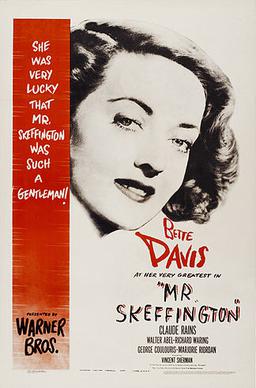
Mr. Skeffington is a 1944 American drama film directed by Vincent Sherman, based on the 1940 novel of the same name by Elizabeth von Arnim.
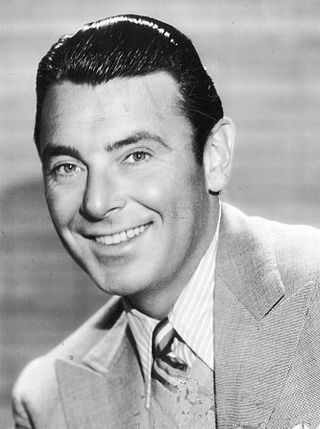
George Brent was an Irish-American stage, film, and television actor. He is best remembered for the eleven films he made with Bette Davis, which included Jezebel and Dark Victory.
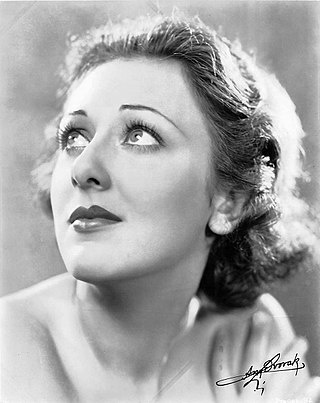
Ann Dvorak was an American stage and film actress.
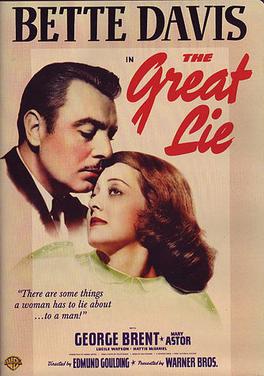
The Great Lie is a 1941 American drama film directed by Edmund Goulding, and starring Bette Davis, George Brent and Mary Astor. The screenplay by Lenore J. Coffee is based on the novel January Heights by Polan Banks.

A Stolen Life is a 1946 American drama film starring Bette Davis, who also produced it. The film, based on the 1935 novel A Stolen Life by Karel Josef Benes, was directed by Curtis Bernhardt. Among the supporting cast are Glenn Ford, Dane Clark, Peggy Knudsen, Charlie Ruggles, and Bruce Bennett. It is a remake of the 1939 British film Stolen Life starring Elisabeth Bergner and Michael Redgrave.
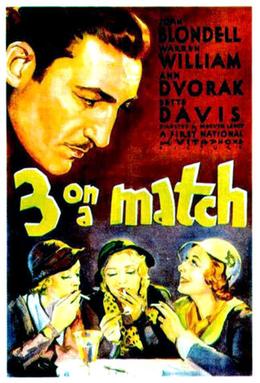
Three on a Match is a 1932 American pre-Code crime drama film released by Warner Bros. The film was directed by Mervyn LeRoy and stars Joan Blondell, Warren William, Ann Dvorak, and Bette Davis. The film also features Lyle Talbot, Humphrey Bogart, Allen Jenkins, and Edward Arnold.

Where Love Has Gone is a 1964 American Technicolor drama film in Techniscope made by Embassy Pictures, Joseph E. Levine Productions and Paramount Pictures. It was directed by Edward Dmytryk and produced by Joseph E. Levine from a screenplay by John Michael Hayes based on the 1962 novel of the same name by Harold Robbins. The music score was by Walter Scharf, the cinematography by Joseph MacDonald and the costume design by Edith Head.

The Catered Affair is a 1956 American comedy drama film directed by Richard Brooks and produced by Sam Zimbalist from a screenplay by Gore Vidal, based on a 1955 television play by Paddy Chayefsky. The film stars Bette Davis, Ernest Borgnine, Debbie Reynolds, Barry Fitzgerald and Rod Taylor. The Catered Affair marked the first appearance of Bette Davis in a Metro-Goldwyn-Mayer picture. It was also Rod Taylor's first film for MGM after signing a long-term contract with the studio. The film score was by André Previn and the cinematographer was John Alton.
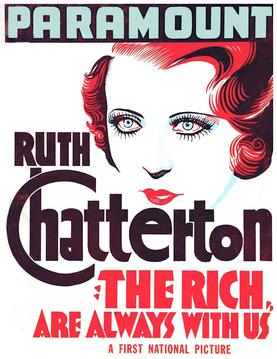
The Rich Are Always with Us is a 1932 American pre-Code romantic comedy-drama film directed by Alfred E. Green and starring Ruth Chatterton, George Brent, and Bette Davis. The screenplay by Austin Parker is based on the novel of the same name by Ethel Pettit.
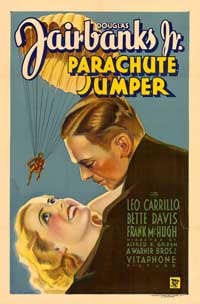
Parachute Jumper is a 1933 American pre-Code black-and-white comedy drama film directed by Alfred E. Green. Based on a story by Rian James titled "Some Call It Love", it stars Douglas Fairbanks Jr., Bette Davis and Frank McHugh.

The Golden Arrow (1936) is an American comedy film directed by Alfred E. Green and starring Bette Davis and George Brent. The screenplay by Charles Kenyon is based on a story of the same title by Michael Arlen published in the September 14, 1935 issue of Liberty.
Front Page Woman is a 1935 American comedy film directed by Michael Curtiz. The screenplay by Laird Doyle, Lillie Hayward and Roy Chanslor based on the novel Women Are Bum Newspapermen by Richard Macauley.
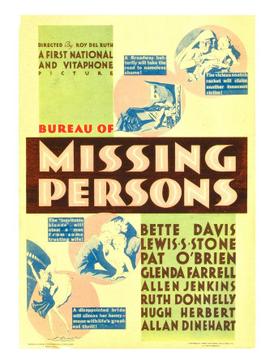
Bureau of Missing Persons is a 1933 American pre-Code drama film with comic overtones directed by Roy Del Ruth and starring Bette Davis, Lewis Stone, Pat O'Brien and Glenda Farrell. The screenplay by Robert Presnell is based on the book Missing Men by former New York City Police Captain John H. Ayers and Carol Bird.

Fashions of 1934 is a 1934 American pre-Code musical comedy film directed by William Dieterle with musical numbers created and directed by Busby Berkeley. The screenplay by F. Hugh Herbert and Carl Erickson was based on the story The Fashion Plate by Harry Collins and Warren Duff. The film stars William Powell, Bette Davis, Frank McHugh, Hugh Herbert, Verree Teasdale, and Reginald Owen, and features Henry O'Neill, Phillip Reed, Gordon Westcott, and Dorothy Burgess. The film's songs are by Sammy Fain (music) and Irving Kahal (lyrics). Sometime after its initial release, the title Fashions of 1934 was changed to Fashions, replacing the original title with an insert card stating "William Powell in 'Fashions'".

Special Agent is a 1935 American crime drama film directed by William Keighley and starring Bette Davis and George Brent. The screenplay by Laird Doyle and Abem Finkel is based on a story by Martin Mooney. The film was produced by Cosmopolitan Productions and released by Warner Bros.

Hollywood Hotel is a 1937 American romantic musical comedy film, directed by Busby Berkeley, starring Dick Powell, Rosemary Lane, Lola Lane, Hugh Herbert, Ted Healy, Glenda Farrell and Johnnie Davis, featuring Alan Mowbray and Mabel Todd, and with Allyn Joslyn, Grant Mitchell and Edgar Kennedy.
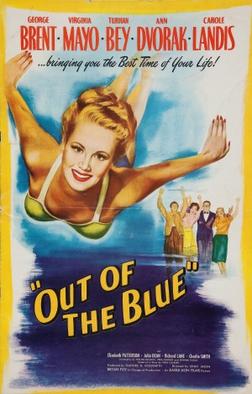
Out of the Blue is a 1947 American screwball comedy film based on the short story by Vera Caspary who also co-wrote the screenplay. It stars George Brent, Virginia Mayo, Turhan Bey, Ann Dvorak and Carole Landis. It was directed by Leigh Jason.
Heat Lightning is a 1934 pre-Code drama film starring Aline MacMahon, Ann Dvorak, and Preston Foster. It is based on the play of the same name by Leon Abrams and George Abbott.

Adrian Michael Morris was an American actor of stage and film, and a younger brother of Chester Morris.


















